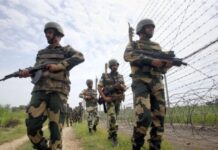Around 8:30pm on July 20, a 12-year-old girl of a garment worker mother and a rickshaw-puller father was watching television at their tin-roofed house in Dhaka’s Mirpur area. Both her parents were out working and sensing that the girl was alone, Polash, the son of their landlord, knocked at the door.
The girl opened the door without any idea or suspicion about what ensued. Thirty-five-year-old Polash raped the helpless little girl who was still to reach puberty. When her mother came home, she told her everything and the family filed a case with the Mirpur model police station. Police were prompt to arrest Polash the very same day. But in less than a week, he was freed on bail.
On Sunday, August 2, two other girls were raped in Dhaka – a seven-year-old in Hazaribagh and a nine-year-old in Mirpur. Police managed to arrest the Hazaribagh rapist but the culprit who committed the crime in Mirpur has remained at large.
According children rights body Bangladesh Shishu Adhikar Forum (BSAF), there has been a spike in the number of child rape incidents in 2015; a total of 280 children have been raped around the country in the first six months alone. The tally of all rapes stands at 896.
Rights activists say that the ease with which suspected rapists get freed on bail and the fact that police fail to arrest the accused more often than not have contributed to the climbing number of child rape cases.
The BSAF tally including stalking – prepared on the basis of news reports published in 10 national dailies – shows that 30 of the victims were aged below six, 79 belonged to the 7-12 years age group, and 80 belonged to the 13-18. The age of the remaining 91 could not be known. Of these 280 victims, 61 were gang raped, 20 were killed after rape, and four committed suicide after being raped.
According to figures from the police headquarters, more than 5,000 rape cases were filed in different parts of the country in the last five years. Courts have delivered verdict in only 821 of them and just about a hundred of those rapists have been punished.
When contacted, Prof Mahfuza Khanam, member of the National Human Rights Commission, told the Dhaka Tribune: “It appears that people are first committing the crime and then easily securing bail from courts using loopholes in existing laws. After coming out, they look for another prey.
“This cycle of crime will go on and on as long as there are loopholes in the laws.”
How and why rapists get bail
Rape cases are generally non-bailable, but there are several reasons why the accused get bail.
First, rape cases rely heavily on the statements given by victims or plaintiffs and the investigation officer. In the absence of victims or plaintiffs’ statement, cases lose strength. Second, sometimes there are flaws in filing of lawsuits, resulting from faulty investigation, which also make cases weak.
Police claimed that victims’ unwillingness to come to court, even for closed-door camera trials, is one big reason for the sloth in the trial of rape cases.
According to Rabiul Islam Robi, a Supreme Court practitioner: “Rape victims’ statements are not recorded in open courts. They usually testify one-to-one with the judge inside a special room in front of a camera. This is known as camera trials.”
While talking to the Dhaka Tribune, psychologist Ashoke Kumar Saha said this unwillingness of the victims is not unusual.
“Rape is a traumatic experience for any victims. Therefore, it is nothing abnormal if a victim does not want to recount the trauma, even before a court. There is also the social stigma associated with being raped in our society. Women do not want to talk openly about this,” Ashoke said.
“They live with a phobia as long as they live. Such phobia affects their lives in every way,” Ashoke added.
BSAF data shows that in the first six months of this year, 39 children were sexually harassed and 28 fell victims to stalking in different parts of the country. Data compiled by the rights body also showed that the number of child rape incidents was 199 last year, 170 in 2013 and 86 in 2012.
None of the cases reported this years have gone to trial and the list of accused include both adults, and shockingly, teenagers.
Asked why teenage boys are turning into rapists, Prof Zia Rahman, who teaches criminology at Dhaka University, told the Dhaka Tribune: “Due to a deep-rooted patriarchal thought process, boys and men alike are learning not to respect women. Institutions that work on sex education have also failed to emit adequate knowledge and raise awareness.”
Why are children increasingly becoming victims of rape? Prof Zia said this is happening because children are more vulnerable than adult women.
Asked what police have been doing to reduce rape incidents, Abdullah Al-Mamun, a deputy inspector general of police, said: “Investigation of rape cases gets top priority from us. If any police officials are found to have shown negligence in investigation, we take action against them as well.”
Source: Dhaka Tribune










